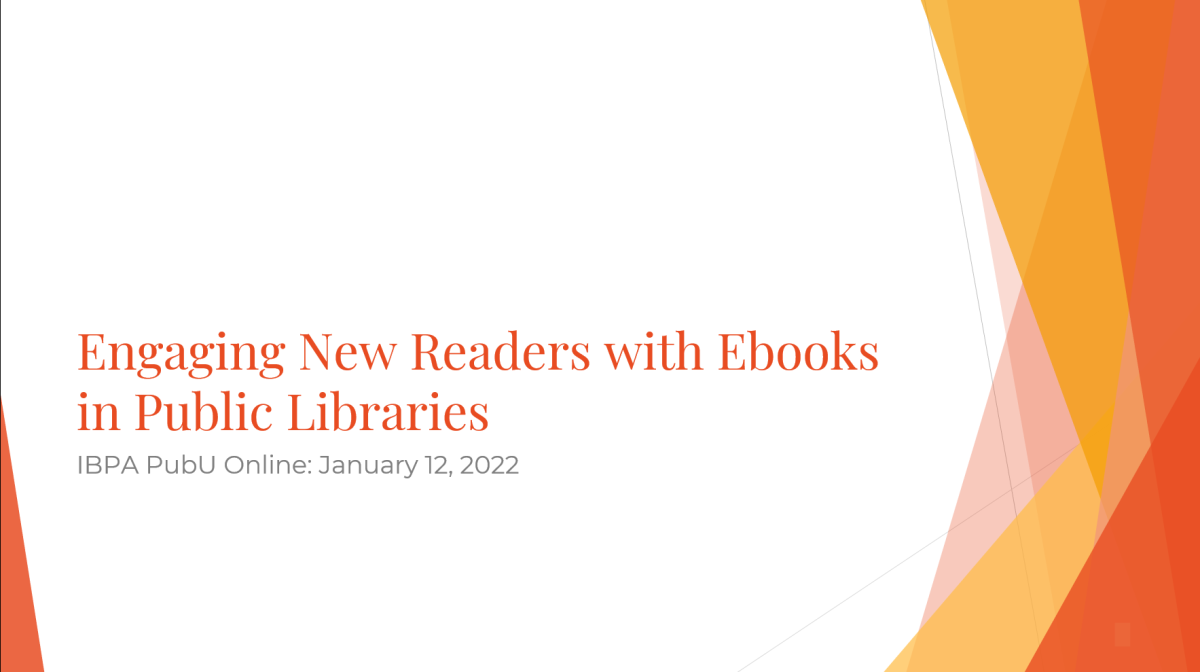Public Libraries and Ebooks Redux [for Independent Publishers]
I had the pleasure of kicking off the new year by participating in IBPA's PubU Online webinar series, presenting "Engaging New Readers with Ebooks in Public Libraries" and I've posted my slides and written up my main presentation here as it pulled together a few threads I haven't addressed in one place before. Non-IBPA members and other library-curious types might find them useful as a starting point to learn more about how libraries work, and why they're an important partner for publishers of all sizes.



